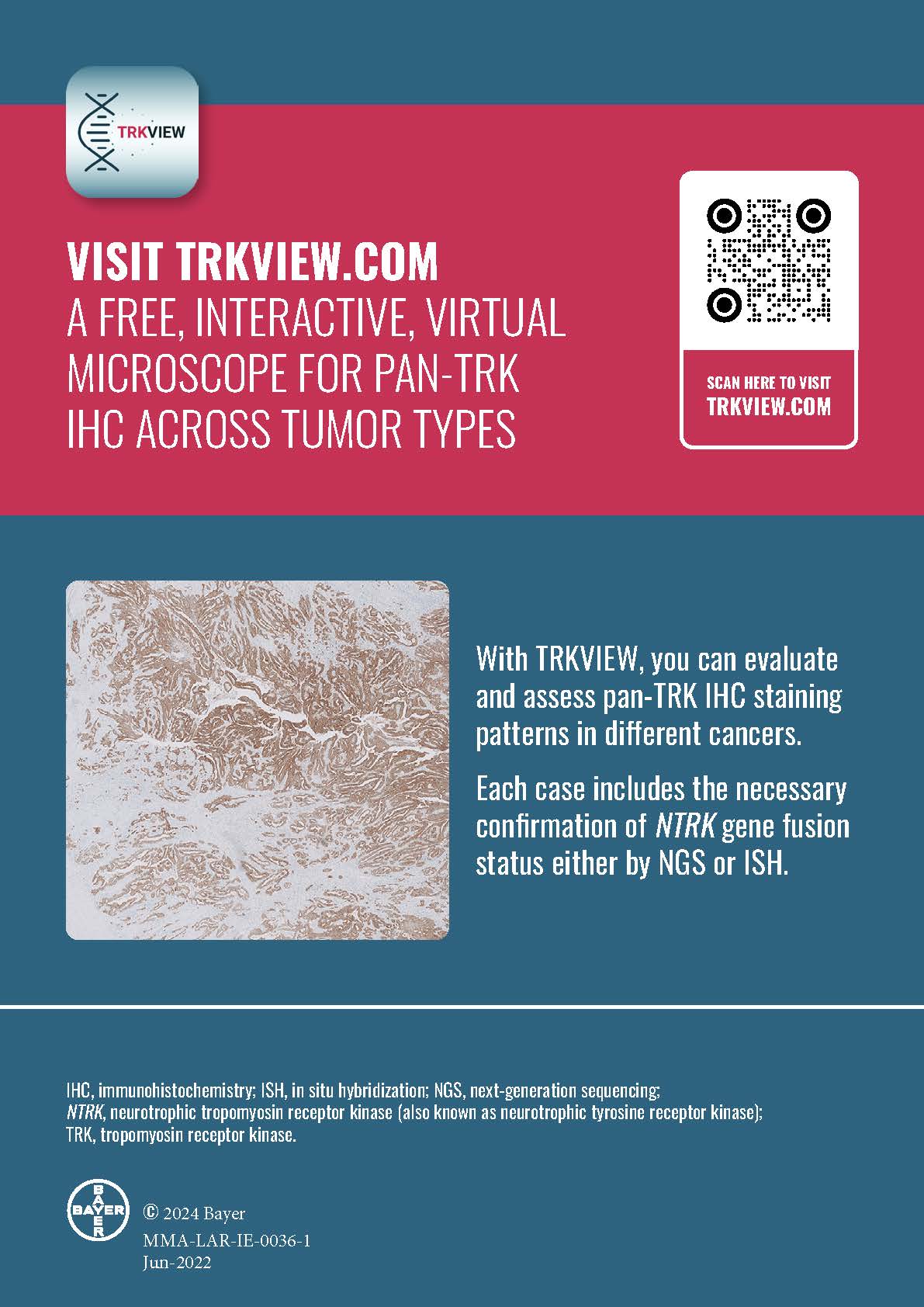Test for NTRK gene fusion – find the right patient
Now that NTRK gene fusions are an actionable alteration, it is important to identify NTRK gene fusion-positive patients who could benefit from treatment with VITRAKVI (larotrectinib).
The presence of an NTRK gene fusion in a tumour specimen should be confirmed by a validated test prior to initiation of treatment with VITRAKVI.1
Testing for NTRK gene fusions should be a standard part of the diagnostic process3
ESMO recommends testing all metastatic or locally advanced cancers for NTRK fusion2
ESMO recommends that NTRK gene fusion status should be investigated:2,4,5
-
At diagnosis of metastatic or advanced cancer, or
-
Following a wild-type result for other known alterations, or
-
Following disease progression despite standard of care6,7
NGS is the recommended approach for detecting NTRK gene fusion2,4,5
-
Alternatively IHC can be used to screen samples, followed by NGS or DNA-FISH for NTRK 1, 2, or 32
Test for NTRK gene fusion—find the right patient sooner.
If you are a healthcare professional looking for more information, please contact us here
REGISTER FOR E-COMMUNICATION
REGISTER FOR EVENTS
PP-VIT-IE-0027-2, June 2023
Reporting adverse events and quality complaints
Healthcare professionals are asked to report any suspected adverse reactions via HPRA Pharmacovigiliance. Reports can also be sent directly to Bayer via this link. Both side effects or quality complaints can be reported to Bayer by email to adr-ireland@bayerhealthcare.com



